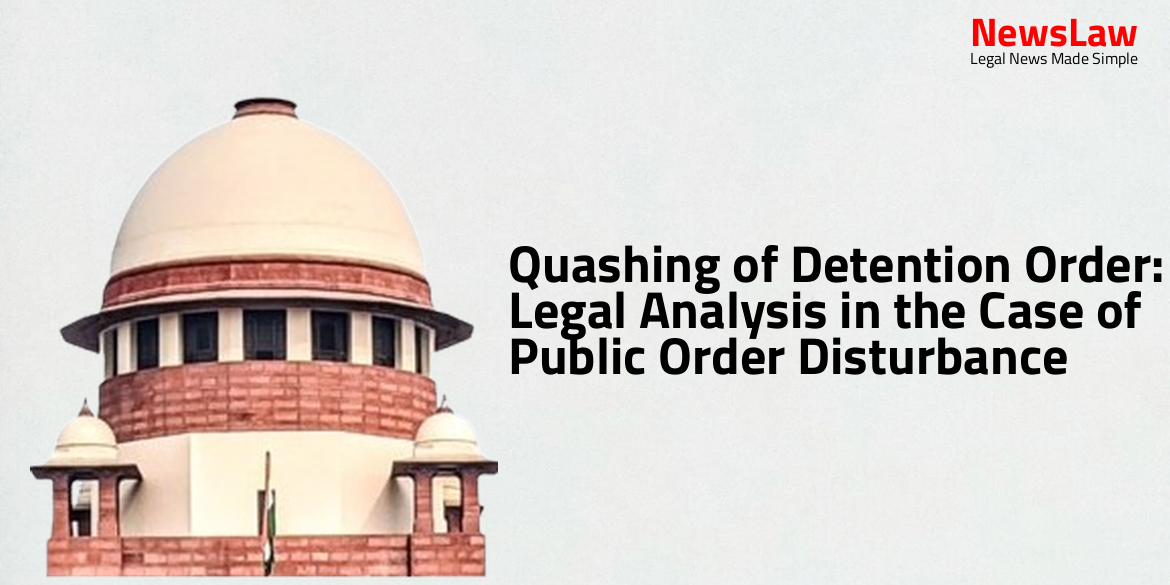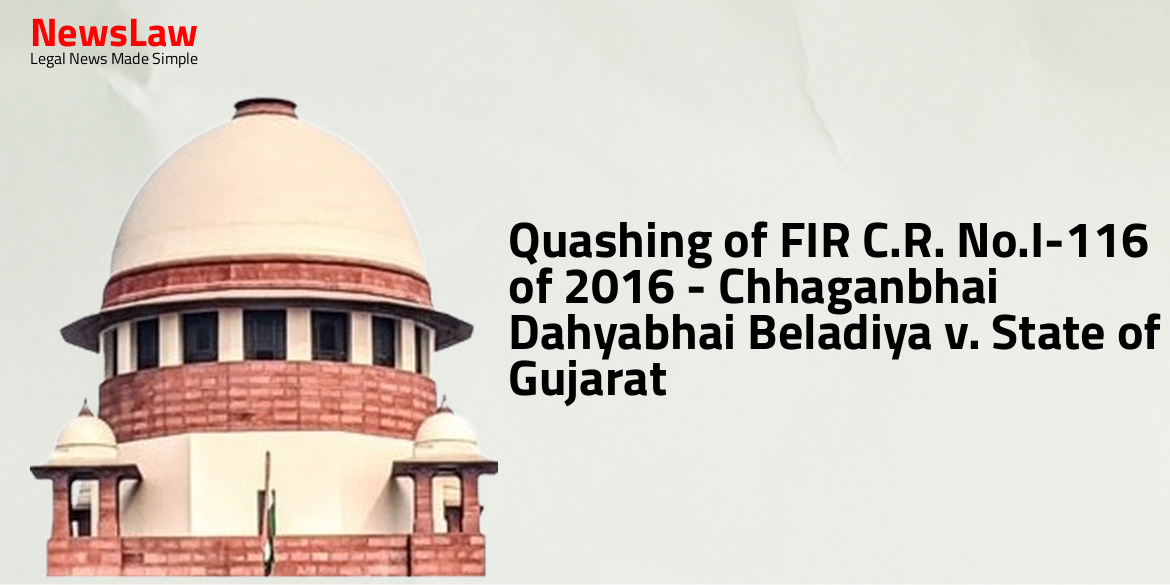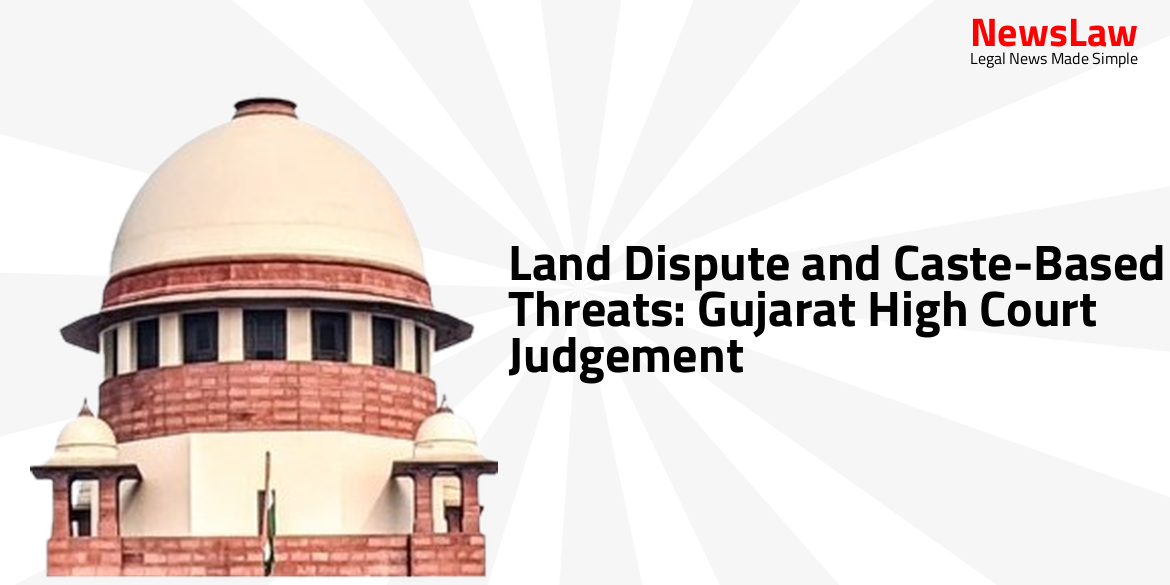In a recent landmark ruling, the Gujarat High Court has set aside the detention order in a case involving public order disturbance. The judgment delves into the intricate balance between individual rights and maintaining public order. Stay updated for a comprehensive breakdown of the legal implications.
Issue
- Whether the case involves a substantial question of law as to the interpretation of the Constitution of India or any order made thereunder.
- Determination of the specific legal issue at hand in relation to the Constitution of India.
- Analyzing the implications of the interpretation of the law on the current case.
- Evaluating any conflicting legal precedents or arguments that impact the constitutional interpretation in question.
- Reviewing the relevant constitutional provisions and their application to the facts of the case.
Arguments
- Petitioner detained for being involved in two theft offences on the same day
- Petitioner released on bail by competent court for both offences
- Activities may cause disturbance to law and order, but not breach of ‘public order’
- The petitioner was released from jail on 05.11.2023 before the detention order was issued on 06.11.2023.
- The detaining authority could have considered cancelling bail instead of issuing the detention order.
- The alleged illegal activities occurred in busy public places and could disturb public order.
- The subjective satisfaction of the detaining authority may be considered to be compromised.
Analysis
- Detenue released from jail on 05.11.2023 and order of detention passed on 06.11.2023.
- Detaining authority failed to substantiate detenue’s alleged anti-social activities affecting ‘public order’.
- Two theft cases against detenue not directly related to maintenance of ‘public order’.
- Subjective satisfaction of detaining authority not evident before passing the order of detention.
- The expression ‘public order’ must draw a line of demarcation between serious and aggravated forms of disorder affecting the community and minor breaches of peace with local significance.
- The distinction between ‘law and order’ and ‘public order’ was discussed in Pushker Mukherjee v/s. State of West Bengal.
- Subjective satisfaction is vitiated when preventive detention law is used in cases where the individual can be handled through other legal means such as cancellation of bail or appeal to Higher Court.
- Registration of FIRs alone does not have a nexus with the breach of public order to invoke power under section 3(2) of the Act.
- Acts of assault or injury to specific persons do not necessarily lead to public disorder and are dealt with under ordinary criminal law.
- For an act to affect public order, it must affect the community or the public at large, not just lead to disorder.
- Disturbance affecting public order falls under the scope of Preventive Detention Act.
- Cancellation of bail was available as a lesser drastic remedy
- Order of detention was passed without resorting to cancellation of bail
- The decision to detain was chosen over cancelling bail
Decision
- The order of detention dated 06.11.2023 has been quashed and set aside.
- The detenue is ordered to be set at liberty forthwith, unless required in connection with any other case.
- The rule is made absolute, and direct service is permitted.
- The impugned order of detention is deemed vitiated.
- The petition has succeeded and is allowed.
Case Title: DARSHAN @KISHAN @BATLI S/O MITHALAL RAVAL (JOSHI BHRAMAN) Vs. STATE OF GUJARAT
Case Number: R/SCA/20638/2023



